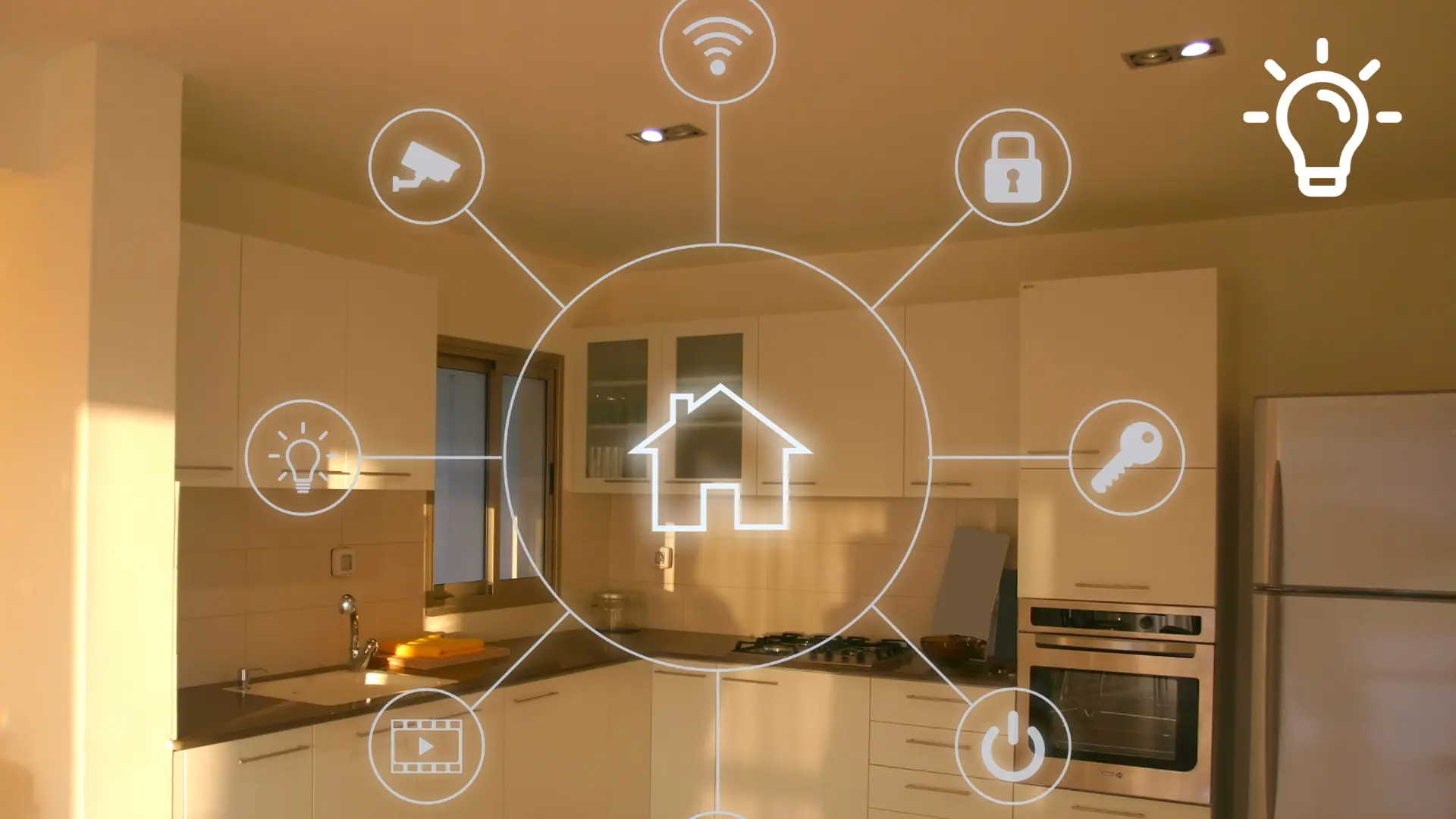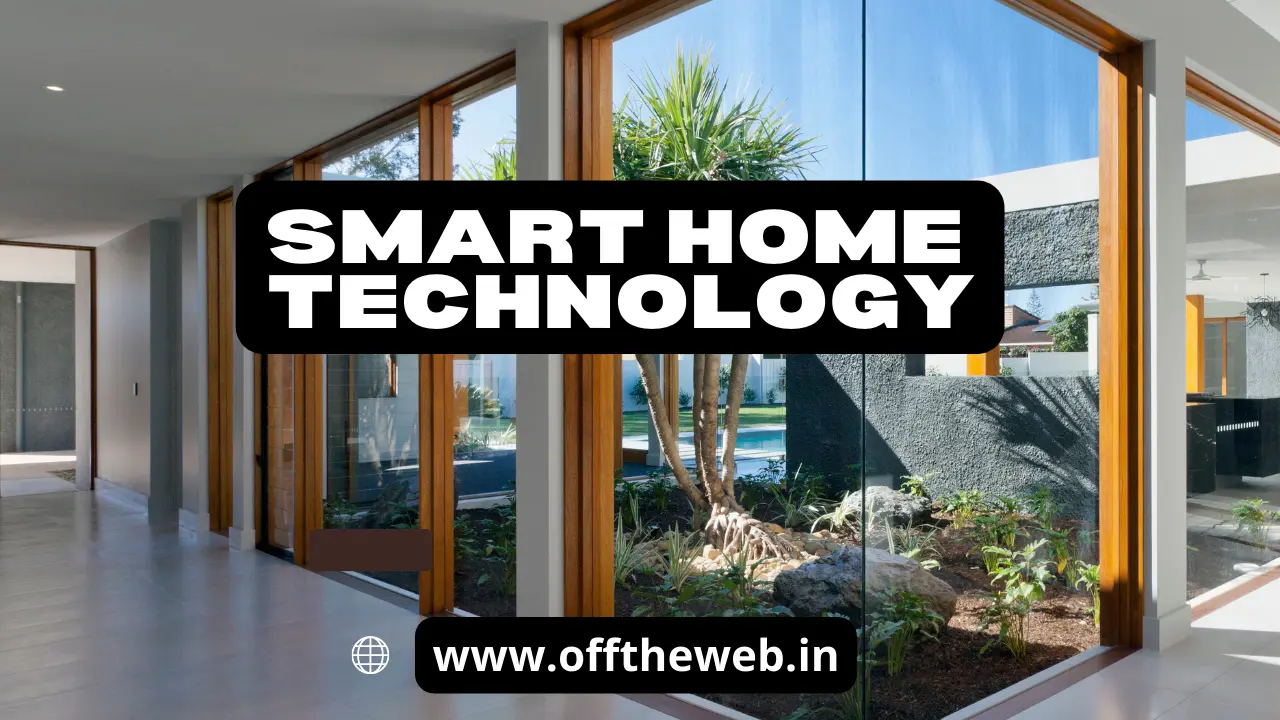Index
Introduction
Smart Home Technology
In an era of rapid technological advancement, many science fiction concepts have become reality. This transformation has not only made our mobile devices and gadgets smart but has also extended to our homes, turning them into smart homes. Smart homes are residences controlled through remote or voice commands, fully automated with intelligent devices that enhance security and overall functionality. These technologies empower homeowners to manage various aspects of their homes. In this article, we will explore the key elements of smart home technology that are reshaping the modern household.
Home Monitoring: Eyes and Ears Everywhere
Imagine you are on a trip far away from your home and still you won’t have to worry about the security of your house because you put a home monitoring system which consists of smart security cameras, motion detectors, door/window sensors, and environmental sensors work in harmony to provide real-time insights into your home's well-being. If something unusual happens, someone trespasses or even rise in carbon monoxide levels, these devices send an alert message to your smartphone. With this home monitoring system, you can have peace of mind knowing that your home is under constant surveillance.
Smart Thermostats: Personalized Comfort and Energy Savings
Smart Thermostats are replacing the traditional one, Smart thermostats are designed to maintain the temperature of the house according to your requirements, it understands your cooling and heating preference, If you are in your office or outside home, you can simply regulate the temperature of your home, so that once you reach home, its temperature comfortable and according to your will, you can do so using an home automation app specifically designed for it. These Thermostats are not only controlled through your smart phone but also energy efficient which cuts down your electricity consumption to an extend.

Smart Locks: Enhanced Security and Convenience
Smart locks are electronic locks that can be remotely controlled and monitored. They often connect to a smartphone app, allowing you to lock or unlock your door from anywhere. Some smart locks also offer features like temporary access codes and integration with voice assistants for voice-activated control.
Smart Lights: Customized Lighting Control and Efficiency
Smart lights are LED bulbs or fixtures that can be controlled remotely via a smartphone app or voice commands through a smart speaker. They allow you to adjust brightness, color, and even set schedules or automation routines. Smart lights can enhance energy efficiency and home security by enabling you to create custom lighting scenarios.
Smart Speakers: Voice-Controlled Convenience and Entertainment
Smart speakers are voice-activated devices that can perform various tasks based on voice commands. Examples include Amazon Echo devices with Alexa, Google Home devices with Google Assistant, and Apple Home Pod with Siri. These speakers can answer questions, play music, control other smart devices, and provide information, all through natural language interaction. They serve as central hubs for voice-controlled smart home integration.
Benefits of Smart homes
Home automation technology offers a wide range of benefits, making daily life more convenient, efficient, and enjoyable. Here are some of the key advantages of smart home technology:

- Convenience: One of the primary benefits of smart home technology is convenience. You can control various aspects of your home, such as lighting, heating, and security, from a single device or app, often using voice commands. This eliminates the need to manually adjust settings and simplifies daily routines.
- Energy Efficiency: Smart thermostats, lighting, and appliances can help you save energy and reduce utility bills. These devices can automatically optimize settings, adjust based on occupancy, and provide insights into energy consumption, helping you make more informed decisions about your usage.
- Security: Smart home security systems provide real-time monitoring and alerts, enhancing the safety of your home. Features like video doorbells, motion-activated cameras, and smart locks allow you to monitor and control access, even when you're away. This can deter potential intruders and provide peace of mind.
- Remote Access: With remote access capabilities, you can control your smart devices and monitor your home from anywhere with an internet connection. Whether you're at work, on vacation, or simply away from home, you can check in on your home and make adjustments as needed.
- Customization: Smart home technology allows for a high degree of customization. You can create automation routines and schedules tailored to your preferences. For example, you can set your lights to gradually brighten in the morning or have your thermostat adjust when you arrive home.
- Enhanced Entertainment: Smart TVs, streaming devices, and speakers provide seamless access to entertainment content. Voice commands, personalized recommendations, and integration with streaming services make it easier than ever to enjoy movies, music, and TV shows.
- Improved Health and Wellness: Some smart devices are designed to help you lead a healthier lifestyle. Fitness trackers, health monitors, and smart scales provide real-time data and insights into your well-being, allowing you to make informed decisions about your health.
- Time Savings: Automating repetitive tasks can save you time. For example, smart appliances can notify you when your laundry is done, and robotic vacuum cleaners can handle floor cleaning autonomously.
- Accessibility: Smart home technology can be a game-changer for individuals with disabilities or mobility challenges. Voice-controlled devices and home automation can provide greater independence and ease of use.
- Increased Home Value: Investing in smart home technology can increase the resale value of your home. Many buyers are attracted to homes with built-in smart features, viewing them as modern and convenient.
- Environmental Impact: By optimizing energy usage and reducing waste, smart home technology can have a positive environmental impact. Energy-efficient devices and home automation contribute to sustainability efforts.
- Peace of Mind: Knowing that your home is secure and that you have control over its various systems can provide peace of mind. You can receive alerts and notifications, making you aware of any issues or emergencies.
Conclusion:
Embracing smart home technology means embracing the future—a future where our homes adapt seamlessly to our needs and preferences. As technology advances, smart homes promise even greater possibilities for enhancing our daily lives. Whether you seek convenience, energy savings, or a safer, more personalized living environment, the smart home revolution welcomes you. It's a revolution that transforms our homes into dynamic, responsive spaces that reflect our unique lifestyles and aspirations.
